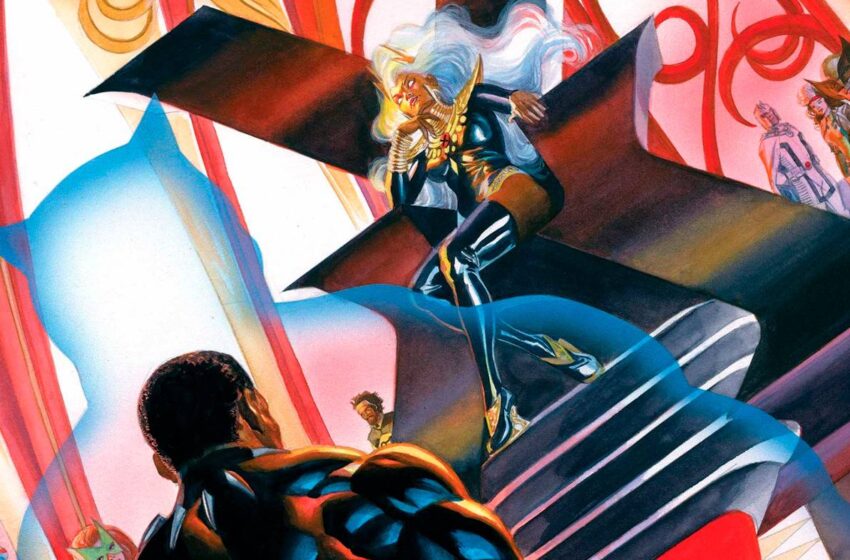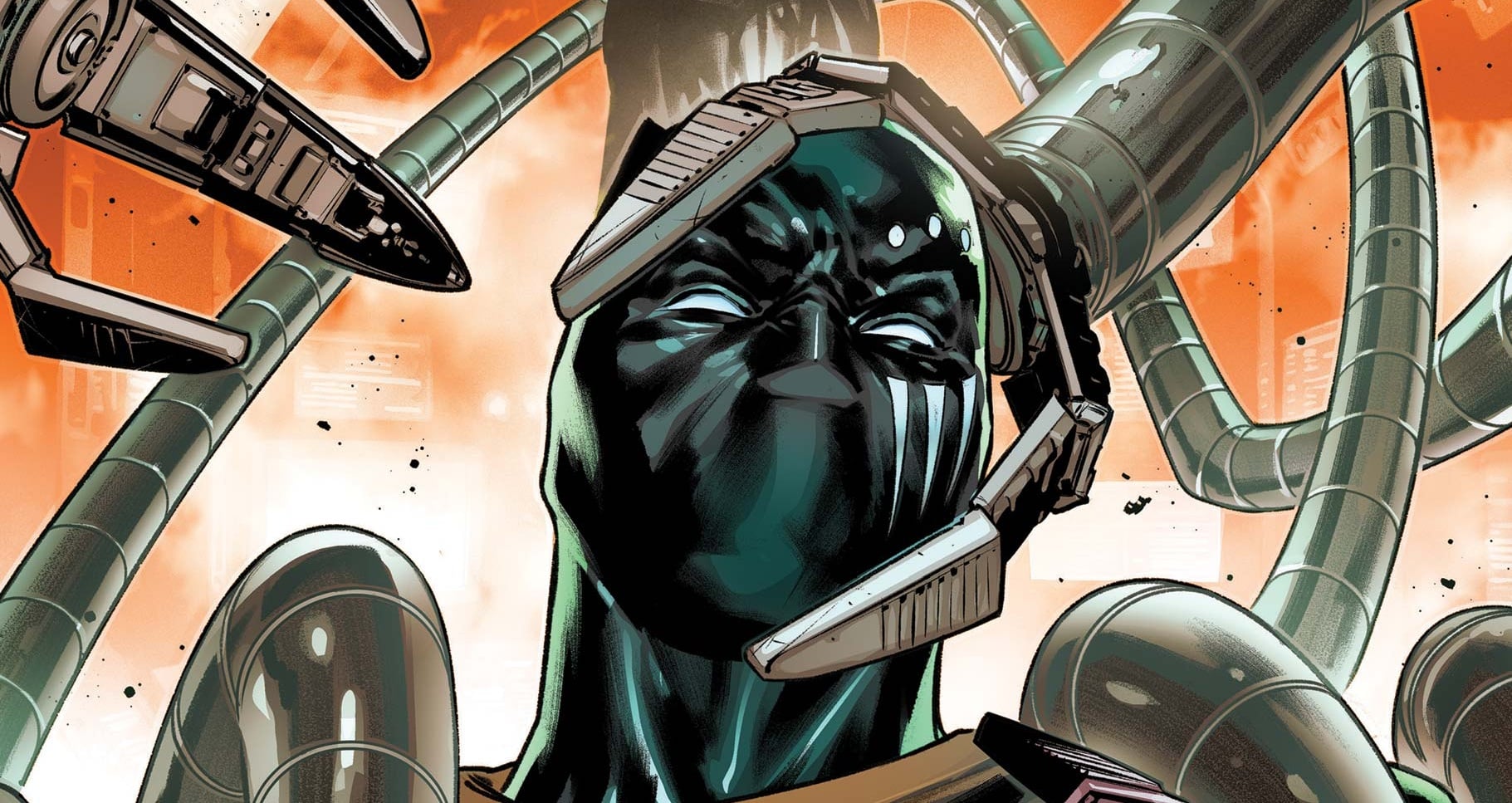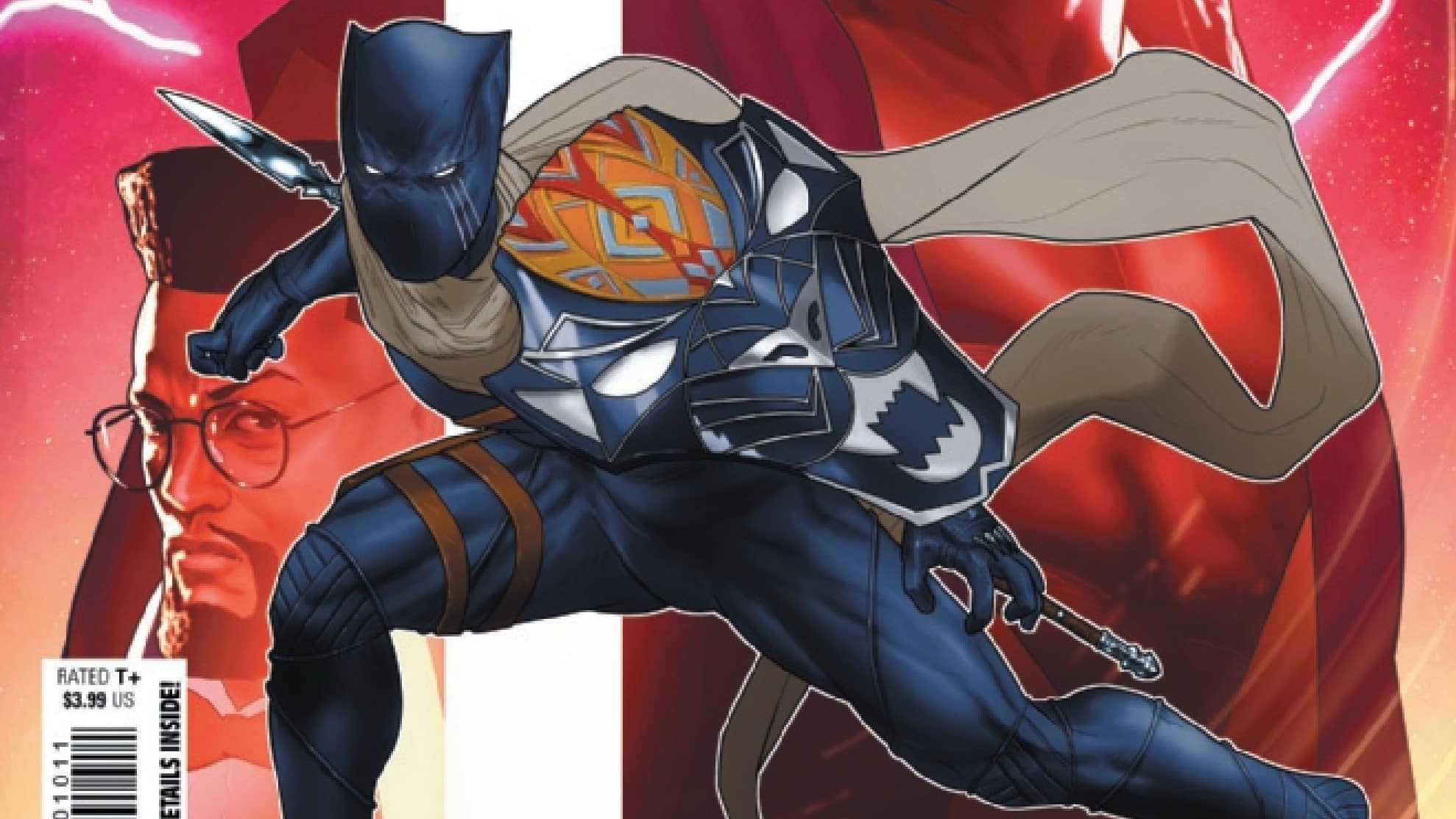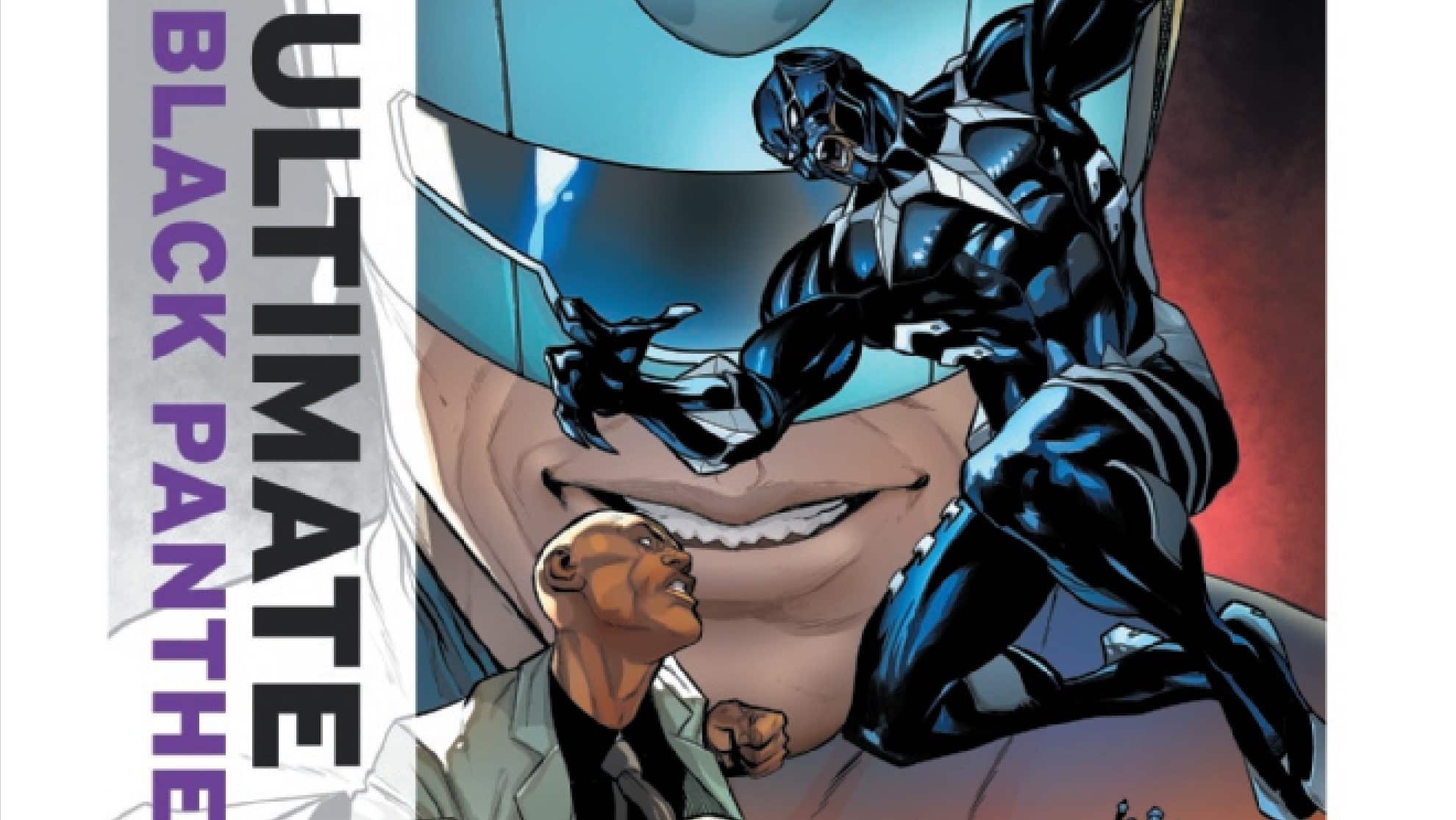Between man and country, between country and king; between friends; between ex-lovers; between the love of ideology and the love of individualism – there’s a lot of love in Black Panther #200.
We find T’Challa and his partner-cum-conscience Omolola mid-fight, as the masked ideologues who’ve been stalking and killing T’Challa’s secret Wakandan spies have finally caught up to the King. The two make quick work of the would-be assassins, trying unsuccessfully, in dark-comedic vain, to keep one assailant alive for interrogation. These action scenes are, as always, illustrated just fine, with colors that feel vibrant yet muted and facial detail that, in the same panel, can feel meticulously detailed (T’Challa) and a bit off (Storm). I find myself preferring the panel framing over the illustration; not just because the frames make it easy to keep pace with action and dialogue, but because the panels themselves form a kind of symmetrical dance with the images contained within them.
From a distance, the framing makes a beautiful collage; upon closer view, the images lose their luster.
T’Challa is clearly hurt about all of this – the killings, the loss, the political instabilities. But the text and visuals lack any sense, other than his silence, of how T’Challa is hurting.
Is he sorrowful, angry, guilty? Is he exhausted or antsy?
In any case, we follow T’Challa from Earth to Mars Akkaro, which necessitates a meeting with its Regent, Storm. That T’Challa would be hesitant to reveal his emotions even to his partner(ish) may be selfish, but understandable. Men are nothing if not reluctant to share feelings until they’ve boiled over into other, more destructive behavior.
Ask me how I know.
That he refuses to let his ‘love” in on his plotting? Less so. T’Challa’s spies are all over Earth and, apparently, Akkaro too. Maybe using Gentle as an embedded spy (you absolutely should have voted for him, even if we did call his spy ties) isn’t unwise; I expect Storm’s eventual awareness of this betrayal won’t come as a total surprise – partners tend to know their male lovers better than those males know themselves.
Ask me how I know.
Storm and T’Challa have had their ups and downs: she did just steal a sacred Wakandan sword while punching Shuri out, so maybe honesty and trust are leniencies he can’t spare; Still, love requires both, and it’s clear T’Challa has provided little of either to Storm, or Omolola, or even Shuri, who he’s been consistently dismissive towards.
Our hero seems much more comfortable letting his guard down around men: Akili, his security chief, who seems strangely, pointedly pressed to learn where T’Challa is; and Gentle, whom he allows an embrace after their feigned fight earlier in the issue.
Despite some inconsistencies (T’Challa, if I’m not mistaken, was not at all hesitant about making Wakanda a democracy), there’s a lot to love here. The plot continues to move quickly and crisply, the dialogue continues to be witty if simple, and the action continues to be consistent if, maybe a bit restrained (this is a man who faced off against Gods; I would expect him to make quicker work of human assassins). My soft spot for the book continues to grow. Ridley clearly wants to make T’Challa his and, while I may not always love it, I absolutely respect it.
_________________
As this is the 200th issue of Black Panther, the book contains two additional stories: the first, written and illustrated by Senglanese and French artist Juni Ba, tells a cosmic tale, from early in T’Challa’s reign, T’Challa’s help is needed to literally and metaphysically remove a thorn from (the Panther God) Bast’s limb, placed there by a treacherous trickster Saï-Saï. T’Challa’s journey follows the familiar framing of trickster-god stories (both African and maybe a little Mxyzptik for good measure), as the supposedly straightforward task takes a few twists and turns, and leaves our hero precariously (if predictably) tied to the trickster. The abstract art style is a wonderfully playful fit for the story, as both protagonist and reader try to figure out what’s real. Ba’s story ends purposely unfinished, and I find myself wanting more: more of this trickster, more about the relationship between man and god, more about what debts he’s meant to pay.
I wish I could say the same about the second story.
Ridley’s other story (and third of this volume) is an origin story, both of a new hero (Tosin Oduye) and for a sect of Wakandans disconnected from their more mainstream, cosmopolitan brethren. Disenchanted by their constant fighting over Vibranium (and around the conspicuous, overly capitalist consumption of the Vibranium-rich populace’s people), a group of Wakandans voluntarily left the grid, disconnecting themselves from the fighting and posturing, and reconnecting themselves – literally, physically – with the substance so associated with their people.
Tosin eventually lets curiosity lead him back to mainstream Wakanda and, apparently, to the cusp of hero-hood. The tale is straightforward and illustrated pragmatically. I’m sure we’ll learn more about Tosin in the ensuing months. Good enough.
But.
I think there’s an important if maybe uncomfortable conversation to be had. John Ridley, like Coates before him (and Reginald Hudlin and Christopher Priest) are Black American men telling the story of Africans. And while I’m sure there’s scholarship, research, and a lot of respect involved, there will always, always be a tinge of imperialistic undertones in their (our!) writing (I am not immune, I am just as guilty) about the homeland. I wonder how an African writer, whose culture may be much more explicitly divided between tradition and western norms, would approach Tosin’s predicament. I wonder if an African writer would have used a different name for the East African protagonist (“Tosin Oduye” is very, very Nigerian). That Ridley created this work doesn’t make this story bad. It’s a clean, if by the numbers intro for a new character. But I do wonder how another writer – say, Tochi Onyebuchi (who’s done a great job on Black Panther Legends and who I expect will do a wonderful job writing Captain America) – would handle this background.
It’s unfair (if sadly common) for non-white folk to speak for their entire people; and yet, for a character who so directly represents the continent, a writer with a more nuanced view of the Continent might be best.
Thus Black Panther #200: Imperfect, yes, but still lots to love.
A proud New Orleanian living in the District of Columbia, Jude Jones is a professional thinker, amateur photographer, burgeoning runner and lover of Black culture, love and life. Magneto and Cyclops (and Killmonger) were right. Learn more about Jude at SaintJudeJones.com.






